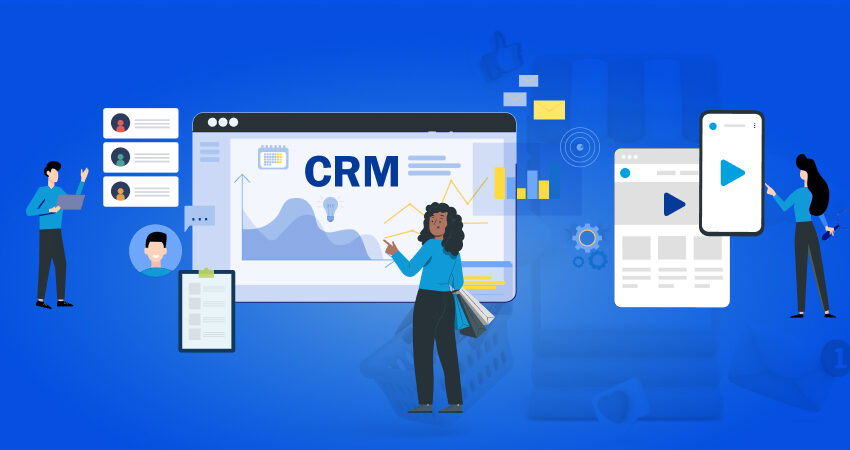In today’s competitive business environment, small businesses are leveraging CRM (Customer Relationship Management) systems to improve customer service, enhance sales, and streamline operations. One of the most widely used platforms for these purposes is Salesforce. With its powerful features and scalability, Salesforce offers an excellent solution for businesses of all sizes, including small businesses looking to grow and improve their operations.
If you’re a small business owner in London, considering implementing Salesforce for your organization, it’s important to understand the step-by-step process. This guide will walk you through the stages of Salesforce implementation, providing you with insights into how to make the most of this powerful CRM system.
1. Assess Your Business Needs
Before you start the implementation process, it’s essential to understand your business requirements. What are your goals for using Salesforce? Are you looking to improve your sales pipeline, provide better customer service, or streamline your marketing efforts?
Identifying your needs and objectives early will help you customize Salesforce to meet your specific business goals.
2. Find the Right Salesforce Consultant in London
Choosing the right Salesforce consultant is a critical step in ensuring a smooth and successful implementation. A skilled Salesforce consultant in London will help you navigate the complexities of the platform and tailor it to your unique requirements.
Look for a Salesforce consulting partner in London that has experience working with small businesses and understands the challenges you face. They should have a proven track record of successful Salesforce implementations and be able to provide you with valuable advice and support throughout the process.
3. Choose Your Salesforce Edition and Features
Salesforce offers various editions and features tailored to different business needs. For small businesses, Salesforce Essentials is a great starting point as it offers core CRM functionalities like sales and service management at an affordable price.
Once you have chosen your edition, your Salesforce consultant can help you select the right features for your business, such as automation tools, analytics, reporting, and integrations with other systems.
4. Customize Your Salesforce Environment
Salesforce is highly customizable, and this is where the expertise of your Salesforce consultants in London will come into play. They will work with you to set up custom fields, objects, workflows, and dashboards that align with your business processes.
A Salesforce developer in London will also be able to assist with any custom coding or integrations that may be necessary to make Salesforce fit seamlessly into your existing systems.
5. Data Migration
Migrating your existing data to Salesforce is a crucial step in the implementation process. You’ll need to transfer your customer information, sales history, and other relevant data into Salesforce to ensure that your new CRM system is fully functional from day one.
A skilled Salesforce consulting partner in London will help you with data mapping and ensure that the migration is smooth and accurate, minimizing the risk of data loss or corruption.
6. Train Your Team
Once Salesforce is set up and ready to go, it’s important to train your team on how to use the system effectively. Your Salesforce consultants in London can provide training sessions tailored to the needs of your staff, ensuring that everyone is comfortable with the platform and knows how to leverage its features.
Salesforce’s user-friendly interface makes it easy to get started, but ongoing training and support will help your team get the most out of the system.
7. Test the System
Before going live with Salesforce, it’s crucial to thoroughly test the system. This includes checking workflows, automation processes, and integrations to ensure everything is functioning correctly.
Your Salesforce consulting partner in London will guide you through the testing process and help resolve any issues that arise during this phase.
8. Go Live and Monitor Performance
Once you’re confident that Salesforce is working as expected, it’s time to go live. At this point, your team will start using the platform for day-to-day operations.
Monitor the system’s performance closely during the initial period to ensure that everything is running smoothly. If any adjustments or tweaks are needed, your Salesforce consultants in London will be there to help.
9. Ongoing Support and Optimization
Salesforce is an evolving platform, and it’s important to continue optimizing the system as your business grows. Regular updates, new feature releases, and changing business needs mean that your Salesforce environment may need adjustments over time.
Your Salesforce consulting partner will provide ongoing support and ensure that your system is always aligned with your business objectives.
Conclusion
Salesforce implementation for small businesses in London can transform the way you manage customer relationships and drive business growth. By following this step-by-step guide and partnering with experienced Salesforce consultants in London, you can ensure a smooth and successful implementation that sets your business up for long-term success.
If you’re ready to get started with Salesforce, consider working with a trusted Salesforce consulting partner in London to guide you through the process and make the most of this powerful CRM platform.


